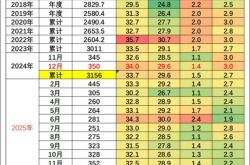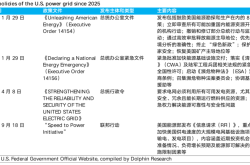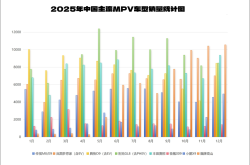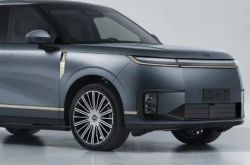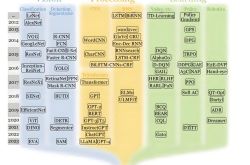Guangzhou Auto Show Concludes: Have 4S Dealers Met Their KPIs?
![]() 11/25 2024
11/25 2024
![]() 660
660
This year's Guangzhou Auto Show featured 1,171 vehicles on display, including 512 new energy vehicles, both setting new record highs.
However, some brands were absent, including Rolls-Royce, Chery Jaguar Land Rover, Subaru, Chevrolet, and 10 other brands.
Everyone has been talking about this recently: Is traffic being monopolized by the likes of Lei Jun and Yu Chengdong?
In fact, there has been a trend in the business world for executives to take the spotlight. In the automotive industry, senior management is widely regarded as the most effective form of marketing.
Senior executives in the automotive industry, such as Yu Chengdong, Lei Jun, Li Xiang, Li Bin, He Xiaopeng, Wang Chuanfu, and Zhou Hongyi, have become celebrities, shouldering the responsibility of driving traffic to their company's brands.
Certainly, marketing master Lei Jun attracts a lot of attention. The day before, he was at the Zhuhai Airshow, and the next day, he was on stage with the Xiaomi SU7 Ultra. He was everywhere, sitting in the back row with Su Bingtian and He Xiaopeng, drawing crowds wherever he went.
Xiaomi's SU7 has already surpassed its KPI of delivering 100,000 vehicles a year ahead of schedule, and its gross margin per vehicle increased from 15.4% to 17.1% in the third quarter, setting a promising start.
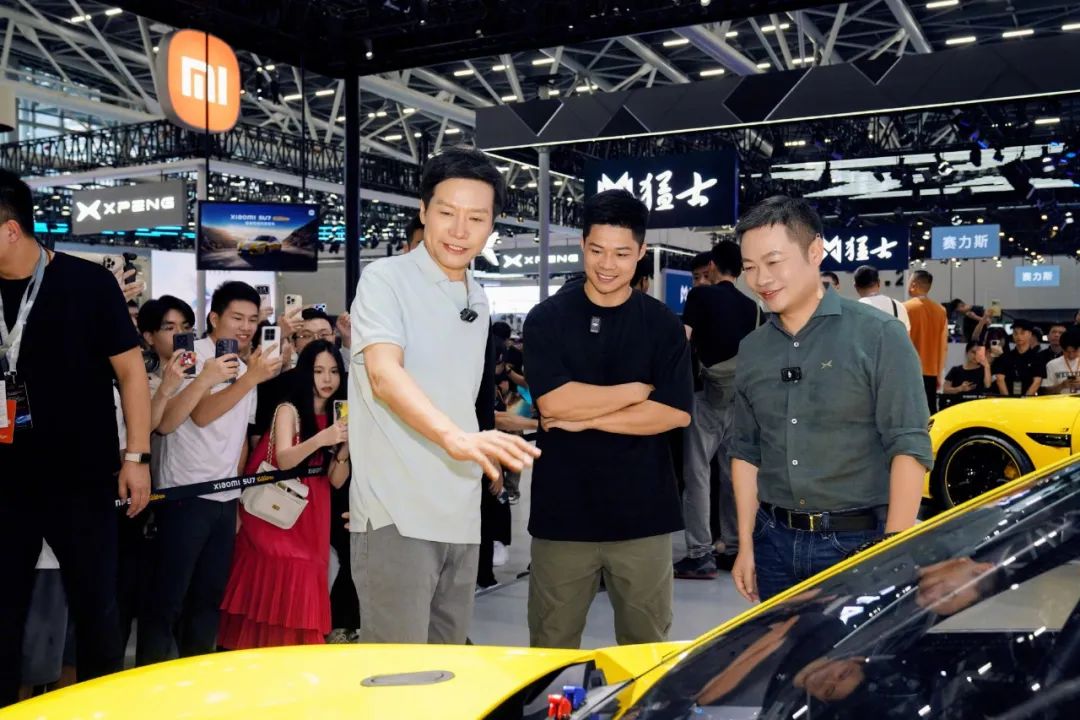
Image Source: Lei Jun's Weibo
Another "traffic magnet" is Yu Chengdong. The HarmonyOS Intelligent Mobility booth brought together four ecosystems for the first time, with the high-end Respect realm, comparable to Rolls-Royce, inviting only a few media outlets for an exclusive visit, creating a sense of suspense. Yu Chengdong was even suggested by Chery's Yin Tongyue to change his name to "Yu Chenggong" (Yu Succeeds).
Thalys, which was the first to embrace Huawei, reported revenue of RMB 106.627 billion in the first three quarters, a year-on-year increase of 539.24%.
Currently, traffic is highly correlated with sales, leaving many business owners without traffic feeling envious and resentful.
As the 2024 Guangzhou Auto Show draws to a close, what other new changes have automakers experienced besides the intense competition?
01
Intensifying Competition in the Red Ocean
There has been no increase in interest in fuel vehicles.
The trend towards the popularization of new energy vehicles is accelerating, with traffic and attention being merely superficial indicators.
According to data from the China Association of Automobile Manufacturers, from January to October, new energy vehicle sales reached 9.75 million, a year-on-year increase of 33.9%, accounting for 39.6% of total new vehicle sales. For several months, the penetration rate of new energy vehicles exceeded 50%, marking a reversal in the trend between fuel and electric vehicles.
BYD remains the clear leader in sales, surpassing 3.23 million vehicles in the first ten months and celebrating its 30th anniversary and the offline production of its 10 millionth new energy vehicle on November 18th.
At the Guangzhou Auto Show, BYD took over an entire exhibition hall and even had an outdoor exhibition area, where the Tang Z9 was officially launched, and the real car of the Tang N9 was also on display.
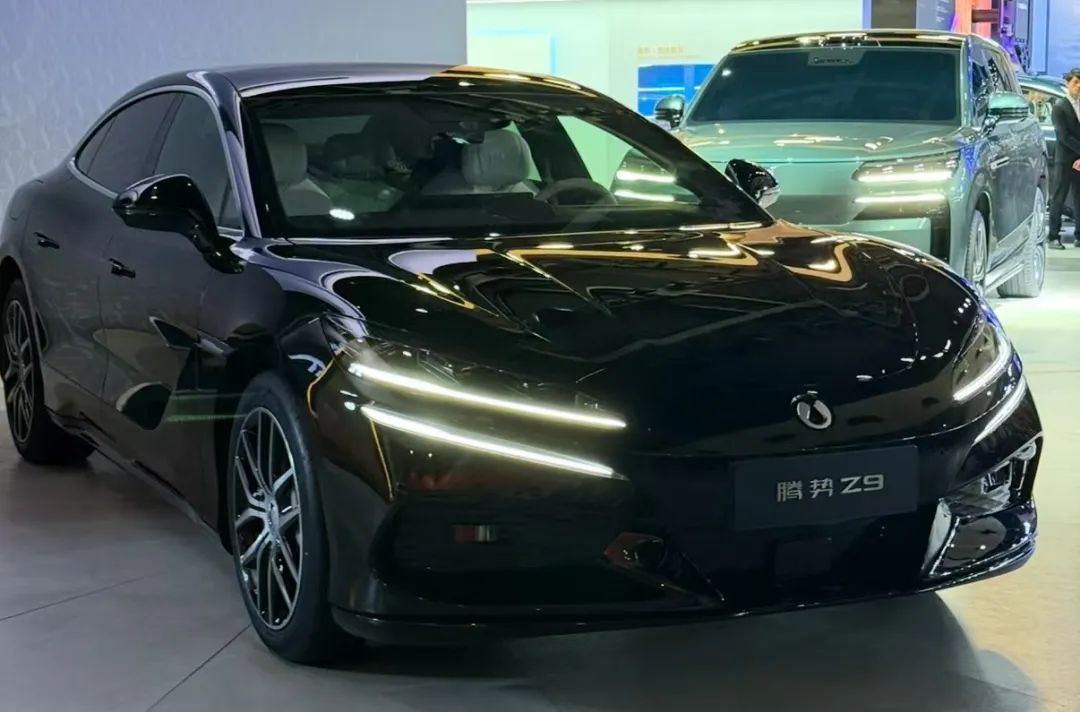
Image Source: Captured by Blackboard Jun
Another standout was HarmonyOS Intelligent Mobility, with cumulative sales reaching 353,710 vehicles. It's worth noting that most of its models are priced above RMB 240,000, and the sales of the AITO M9 have been the champion in the Chinese luxury market for models priced above RMB 500,000 for seven consecutive months.
After consecutively launching the MONA M03 and P7+ models, XPeng is aiming to hit the monthly sales target of 30,000 vehicles again. It even had its XPeng Huitian flying car take off at the auto show, accurately tapping into the hot spot of the low-altitude economy.
There have been both successes and setbacks. NIO reported a huge loss of RMB 5 billion in the third quarter and is set to launch its third brand, Firefly, after its second brand, Letao. With stagnant sales, there is a sense that XPeng may soon surpass NIO.
Not to mention the precarious Nezha booth, which was deserted, and the disappearance of new energy brands such as Hozon Auto, HiPhi, and Voyah, the reasons for which are well-known.
The new energy market is becoming increasingly competitive, with all-round confrontations in technology, products, intelligent driving, funding, and channels, leading to an increasing number of small and medium-sized players falling behind.
As the tide gradually recedes, there may be even fewer players left in the next one or two years.
02
Sales Atmosphere Transforms Exhibition Stands into Marketplaces
At this year's Guangzhou Auto Show, all automakers made sales their core task.
On the first media day, Blackboard Jun noticed that many exhibition stands had a large number of live streamers and media representatives from manufacturers or 4S stores vying for camera positions, all aiming to obtain sales leads and sell cars.
Moreover, not only were many automakers absent this year, but major suppliers such as Bosch, SenseTime, and DJI also did not participate, further intensifying the sales atmosphere of the Guangzhou Auto Show.
A salesperson from a certain BBA brand 4S store told Blackboard Jun that everyone in their 4S store had to attend the auto show for five days, and her KPI during the auto show was to sell eight cars.
After all, 2024 is coming to an end. Looking back at the 2024 sales targets of major automakers, besides a few automakers like BYD, Geely, Xiaomi, Lixiang, and Leapmotor, which are expected to meet or exceed their targets ahead of schedule, many automakers have only achieved 50% to 60% of their targets.
As the last A-class auto show of the year, it is understandable that the Guangzhou Auto Show shoulders more sales tasks.
Recently, some automotive self-media experts have also been shouting: "We just want to buy the cars we want, not to be second-hand dealers."
However, the pressure on automakers' sales will only be passed down.
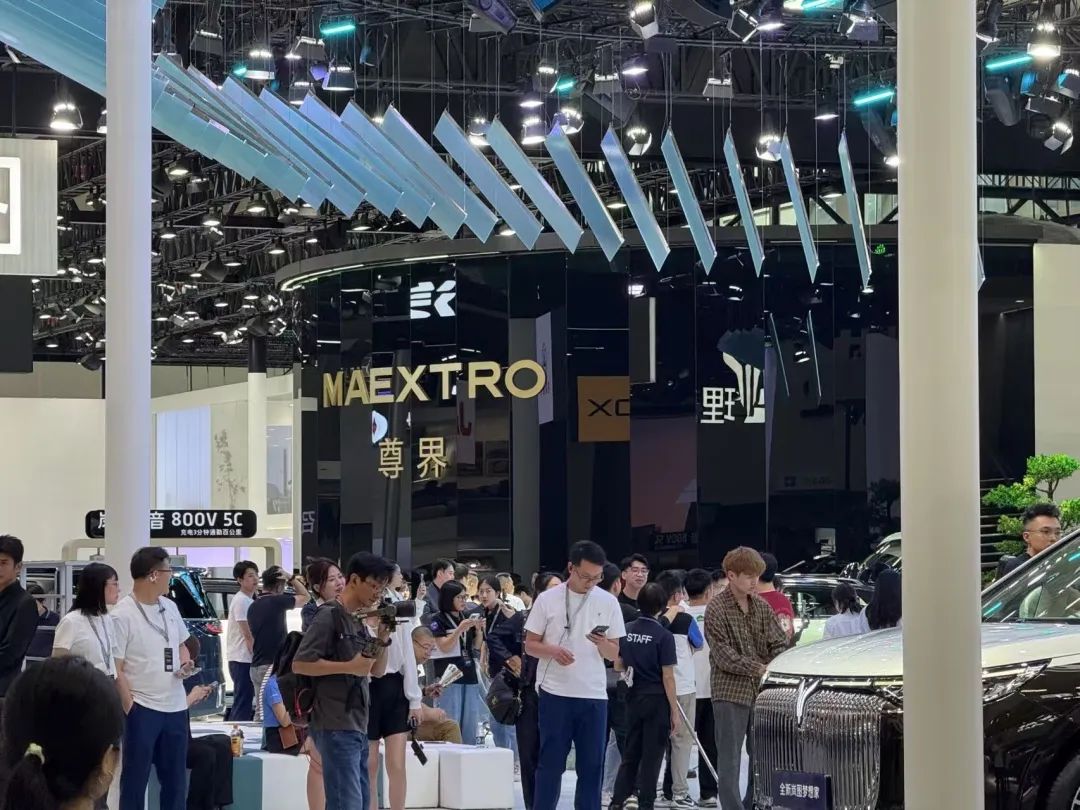
Image Source: Captured by Blackboard Jun
During the auto show, Wang Xiaofei, Vice President of Changan Automobile, believed that:
In 2025, China's automotive industry will progress through trials and tribulations. Firstly, the overall size of China's automotive industry is still growing healthily. Secondly, the entire product mix is shifting towards models with higher technological content.
Xu Sitao, Chief Economist of Deloitte China, believes that the domestic market for the automotive industry is stabilizing, while the foreign market is continuously expanding. If Chinese automakers do not venture into international markets, they will be left behind.
Finding one's own breakthrough in the certainty of the new energy trend has become a path that every automaker must explore at auto shows and in the coming years.
Not long ago, a major executive from a new force automaker complained to Blackboard Jun:
Selling one car domestically results in a loss of RMB 20,000, while selling one car abroad results in a profit of RMB 20,000. But what will happen next year is still uncertain.

